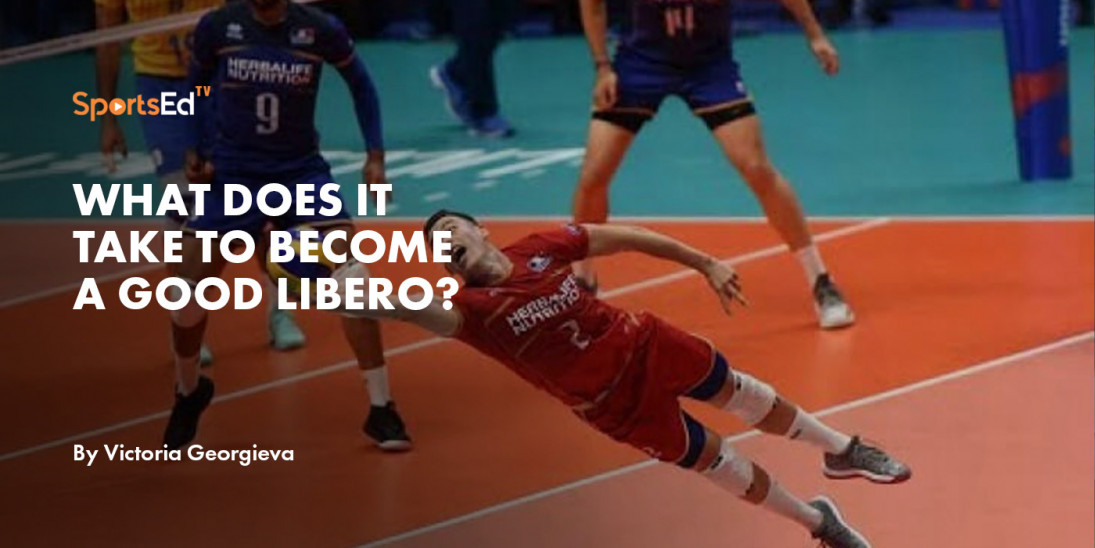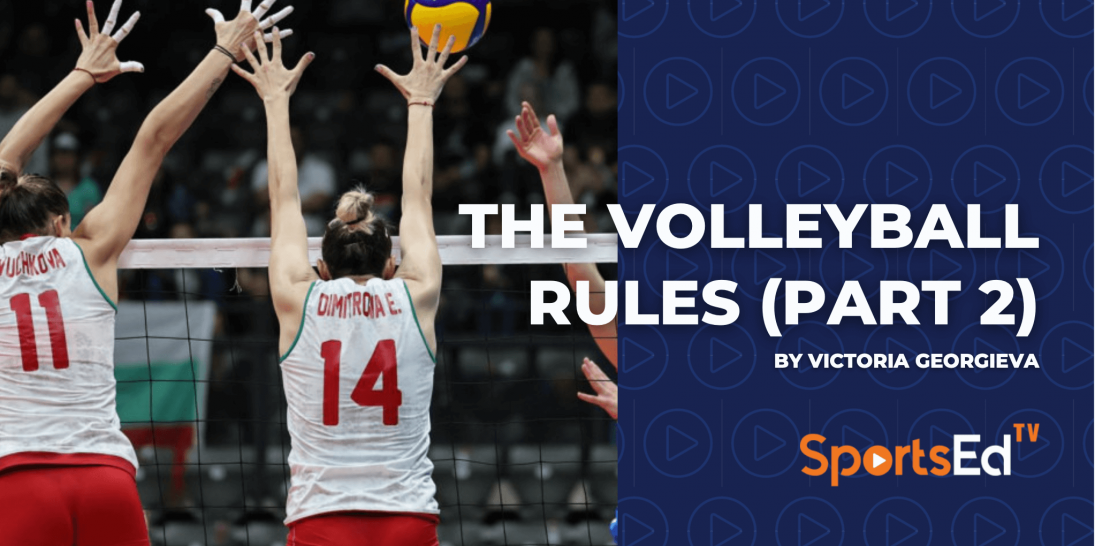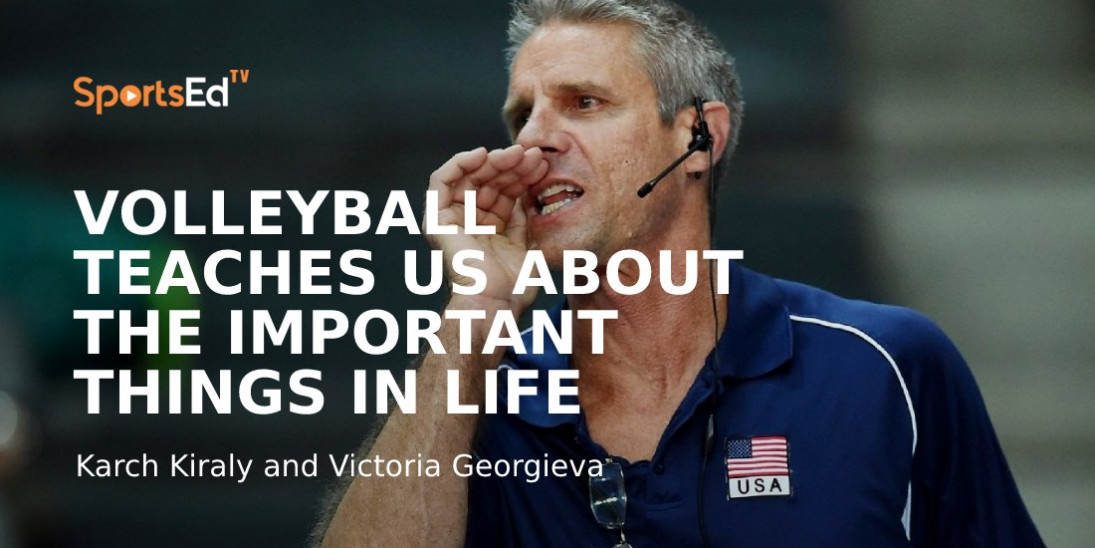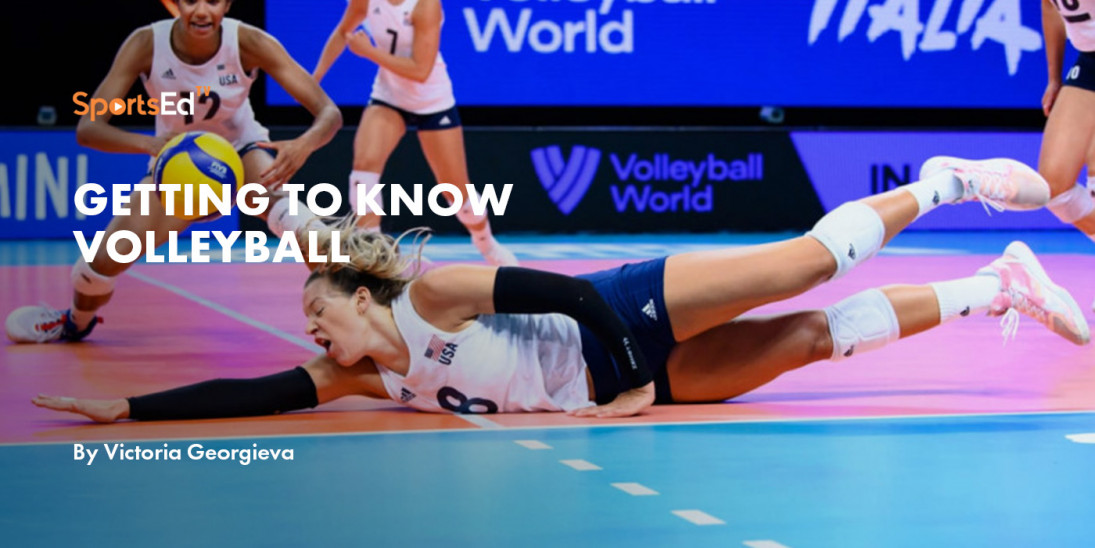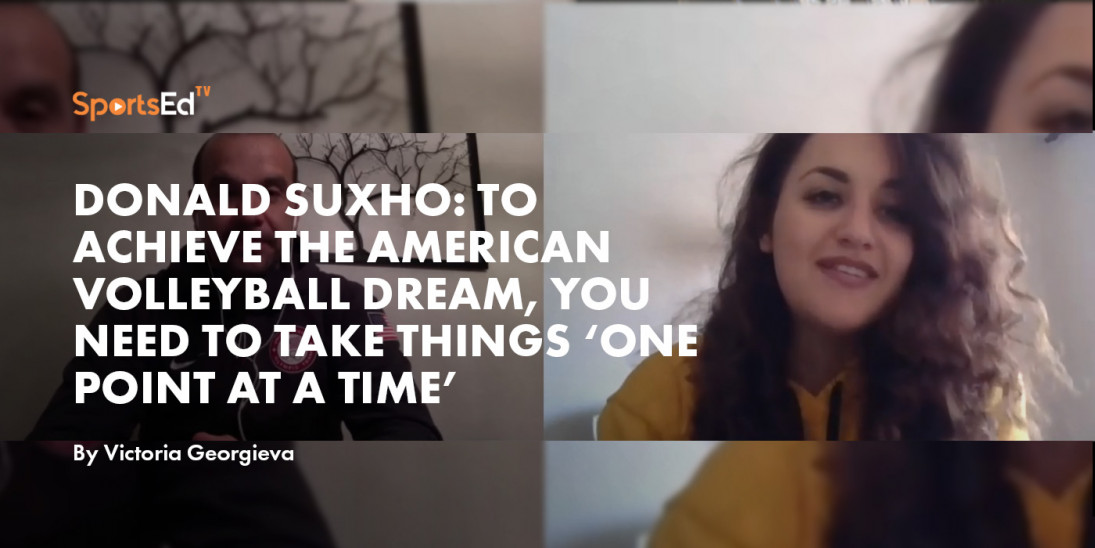Volleyball
Welcome and thanks for visiting...

SportsEdTV interviewed Adrián Fiorenza
Coming to Barcelona, Spain some years ago, I found myself in a completely new volleyball world. Back in my native Bulgaria, one would get inspired by the great results of the men’s national team while in Spain you would see the charm of volleyball being one of the fast growing sports becoming more and more popular year after year.
It took me some time to adapt to this new reality but talking to Adrián Fiorenza, Technical Director and Coach at CVB Barça, it finally all fell into place. I got to understand Spanish volleyball not only as a fan going to the matches of the local team, but also having the chance to have a look behind the curtain.
If you are a passionate about learning more on volleyball across the world, this time we at SportsEdTV will get you to sunny Spain. Read on!
Who is Adrián Fiorenza?
Currently, Technical Director of CVB Barça, Adrián is a native of Argentina who for almost 20 years now is developing a coaching career in Cataluña, Spain. Adding 10 years of coaching in Argentina before that, one can definitely trust on Adrián’s wide experience in the field learning a lot about volleyball processes and approaches in the coaching career.
SportsEdTV: Thank you, Adrián, for accepting our invitation to share your experience and knowledge with our followers. How are you?
Adrián Fiorenza: Fortunately everything is fine. We are taking all the precautions regarding the Covid situation, and we hope to be able to move forward to the next period. Of course, with a lot of patience but I believe that this was a good period to think about the future.
SportsEdTV: To think about the future of volleyball, too, and how we can adapt to this new reality, I suppose.
Adrián Fiorenza: Yes, to exchange information. We had time to try to improve, to plan things in more detail, and now we are looking forward to putting everything into practice.
SportsEdTV: How did you start with volleyball?
Adrián Fiorenza:I had a childhood marked by sports everywhere I looked around. In my city, in my family, in my circle of friends, at school. There was a lot of club life back then. We would finish school, and we would go directly to the club; to sports centers where one could practice many sports. I had this opportunity to practice basketball, tennis, swimming, soccer… Until volleyball came into my life and stayed forever.
I got hooked, I played it with my friends. However, it was not an early thing because I started volleyball a little late, at the age of 16. Playing volleyball became part of how we identified each other on a social level, later the competitive part woke up. By chance, I started collaborating in the technical part. There was a coach who was working with female athletes, and he needed someone to help him. This is how it all started more professionally for me on the coaching side.
SportsEdTV: Was this your special moment that turned things around for you?
Adrián Fiorenza:I was very lucky because this happened at a time when the coaching courses in Argentina, and in Buenos Aires in particular, counted on very, very good teachers
When I got into volleyball, I met some very inspiring coaches because they transmitted the passion they felt for the sport. This changed radically the course of my life. Since I was a child, I had been thinking about studying a certain career, I thought about becoming a journalist. Actually, I had even started. I finished high school, and I went to the institute where I started studying journalism. But when I found this reality of coaching volleyball, it changed everything.
SportsEdTV: In life you never know, right? What years are we talking about?
Adrián Fiorenza: This was in the end of the 80s, the 90s, a time when Argentina was achieving good results on an international level, with many Argentinian coaches who had gone to Europe. It was the 90s - the years of Julio Velasco's generation in Italy, and this hit very hard in Argentina (in a positive aspect). I remember that one of the most important experiences for me was participating in the weekly meetings with coaches in the federation. We would meet once a week under the tutelage of an expert coach who had traveled to Italy to meet with Velasco. When he returned from Italy, he brought a lot of material that did not arrive in Argentina at the time, and we spent many months studying and translating this material and trying to implement these new things.
SportsEdTV: What new things?
Adrián Fiorenza:It was a time in which the focus changed a lot. It went from a very systematic and analytical approach where technique was trained a lot outside the game, to an approach where technique was trained within the game. That new approach changed completely our vision of training, it made us study a lot, we had to adapt and break with the old status quo.
This is a very difficult thing within any training culture, and ours at this time was based on very fixed principles that you need to train the technical part before playing a game. It seemed that the game was the last thing - you could only play when you did it perfectly in the different elements. With this total change of the approach, we learned that our technique evolved also during the game and that actually you improve your elements by playing.
SportsEdTV: How long did this process take?
Adrián Fiorenza: It took many years and many generations. It is difficult to change things when with the knowledge you have, you have obtained good results. It is much easier for the new generation that learns things directly, on a clean plate, to say so.
Luckily, the coaches of that time inspired us with the spirit of studying continuously and being open to changes. Volleyball in this sense is full of opportunities. There have been changes in the rules, the game becoming much more intense. And compared to the rest of the sports, volleyball has evolved the most. This means that the coaches have to be permanently learning and improving.
Now we are in a period when we are assimilating the importance of balance in the training process meaning that we mustn't leave aside the technical training only because we are now open to improve during the game. Because after all, volleyball is a sport in which the technique is extremely important.
SportsEdTV: What is it that makes technique that much important?
Adrián Fiorenza: Volleyball is a very peculiar sport, any mistake is paid very seriously. For example, if a soccer or basketball player misses a shot, the game continues without adding anything to the opposite team. While in volleyball, you know if the spiker hits “out”, it is a point for the other team.
So, volleyball has this peculiarity that pushes a lot toward the constant improvement of the technical skills. Coaches have evolved a lot, in my opinion, and now the trainers are much better than before, with all due respect. It is a matter of science. Nowadays we know things that early weren’t available as knowledge.
SportsEdTV: We have many more resources to do video analysis, follow-up statistics...
Adrián Fiorenza: All these processes take time because what usually happens is that there are generations that resist change and there are others who want to change everything now. When both energies merge is when things start to work.
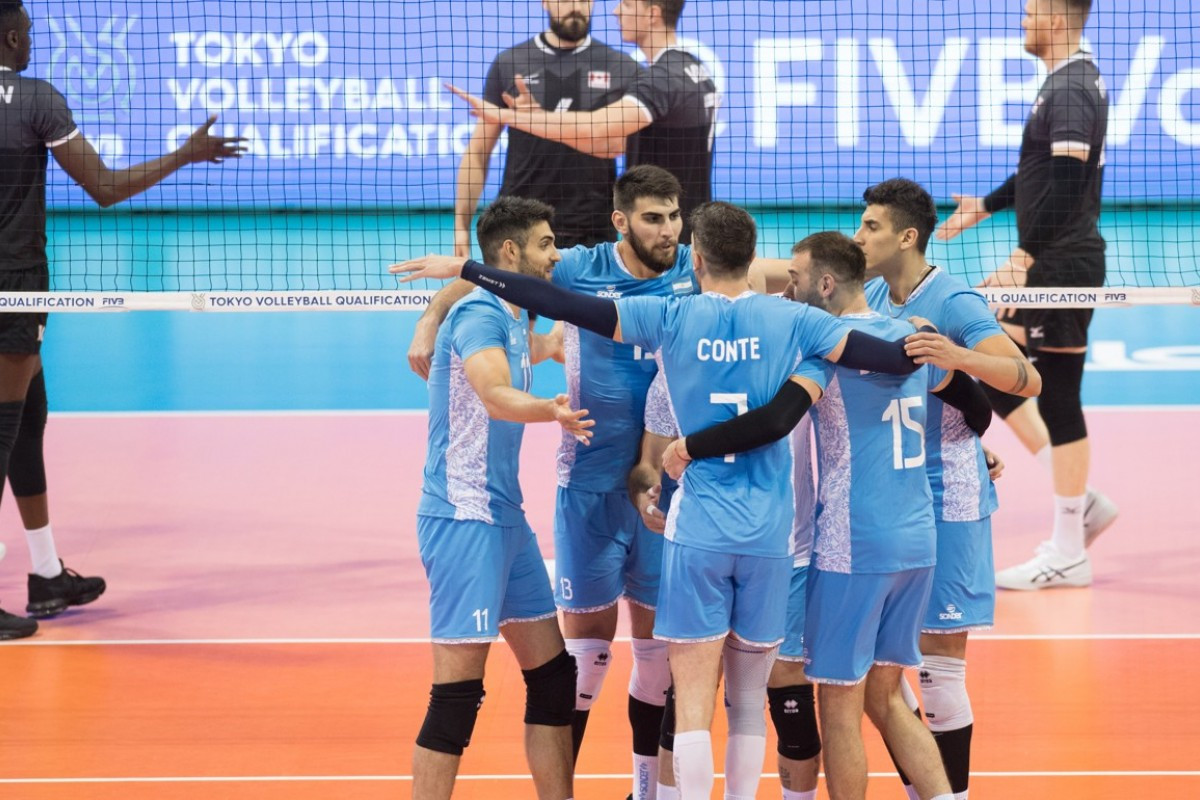
SportsEdTV: Back to your home country, can you tell us a bit more about volleyball in Argentina?
Adrián Fiorenza: There are many passionate people in Argentinian volleyball. People who want to do a lot and have the will. There are athletes with good physical predisposition and technical talent, with a vision of the game.
On the other hand, it is a sport with limitations; It is difficult to find people with the right approach to compete at a professional level because material resources are sometimes limited, so clubs are struggling. However, that spirit that coaches have, makes the sport grow.
About the national teams, I have only admiration for Marcelo Méndez (current head coach of Argentina’s men team), he has great technical staff helping him.
Women's volleyball has developed a lot since I left Argentina almost 20 years ago. It has made a very important jump that I haven’t imagined they would do. And there are two components to this - playing the FIVB Grand Prix and Qualifying for the Olympic Games. However, female players still need to go abroad, experiment in other leagues with a more professional character.
SportsEdTV: Why did you leave Argentina and decide to coach abroad?
Adrián Fiorenza: On the one hand, I wanted to get to know the world a little, to see new places and how people there lived. Secondly, it was a great chance for a professional development. In Argentina, I had been training for almost 10 years, so when an opportunity occurred to come to Catalonia, I took it and I started training a men’s team.
SportsEdTV: Was it difficult, having in mind that you had previously coached women?
Adrián Fiorenza: 90% of my experience has been with women's teams, but we achieved good results with the men’s team. The following year they offered me to go to a women's team, at the national level.
SportsEdTV: Can you explain us a little bit more about volleyball in Spain?
Adrián Fiorenza: The different regions in Spain have their federations that organise their local competitions and these competitions give access to the national competitions U14, U16, U19. Fortunately from the next year there will be U20, too. At national level, the royal federation has 3 categories - the Super League, the Super League 2 and First Division. In my opinion, these competitions should be played during a longer period. For example, the regular season has just finished and until the end of September, beginning of October, there will be no official matches.
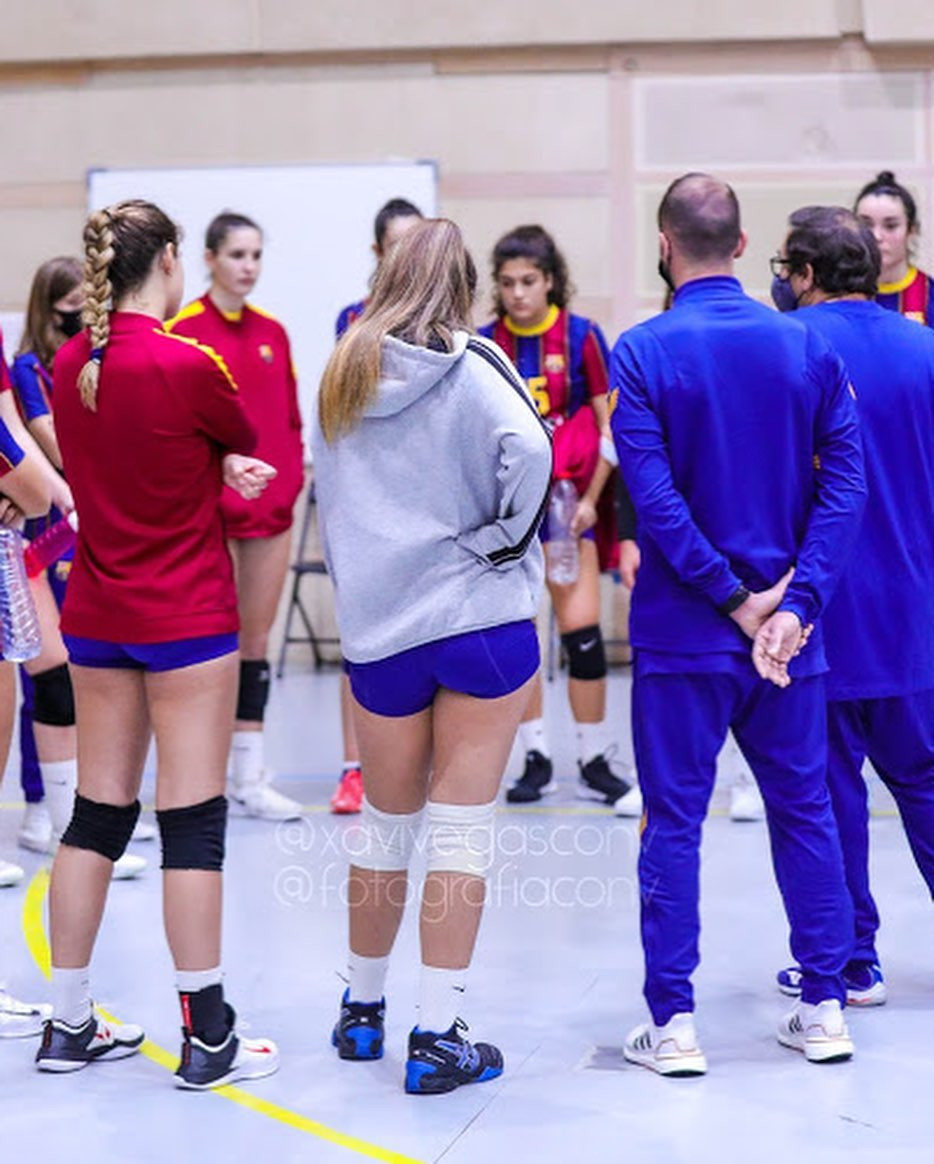
SportsEdTV: How do you motivate your players in such situations?
Adrián Fiorenza: We, at the club, have this special training program giving players the opportunity to train for 10 months. When the competitions are officially over, we take a week off, and then we start again. We dedicate this time to the technical development, since in this period we don't have to prepare for a game on the weekend. But it is not easy,
In the pre-COVID times, we would organise an international competition during the summer, we would travel to France, Italy, or we would receive universities from the United States.
Making the competitive season longer is beneficial for the development of young players.
SportsEdTV: I would like to bring you back in 2007 when Spain were crowned #EuroVolley champions. How would you explain this success and what happened afterwards?
Adrián Fiorenza: It was the result of the continuous work with talented players of the same generation, many of them playing in the strongest leagues around. The team also counted on coach Andrea Anastasi, who has a great expertise and has worked excellent with this group of players who had the ambition to do something great.
After this success, several things happened. The economic crisis affected quite strongly the league. However, volleyball in Spain during the last 15 years has experienced a very important quantitative growth, especially in the female sector. Many people practice it but at the moment it has not been accompanied by qualitative growth. In my opinion, the clubs have to study if the model of having many people playing, is compatible with the goal of great performance. It is time to do the quality jump.
SportsEdTV: What, in your experience, is the biggest challenge of your profession?
Adrián Fiorenza: Right now, in our society, we have adopted this concept of doing sports as beneficial. Many people are doing sports. But our biggest challenge as coaches is to transform people who do sports into athletes. And this is not the same. Being an athlete has to do with a certain lifestyle. Our main mission is to explain to the players what this lifestyle is about, and how it can become an important part of their existence since it has to do with their families, studies etc. From this point on, once we detect the talented ones, we can take the second step. And this is not very easy - sometimes you need to convince a teenager to dedicate all their free time to trainings, to go early to bed, to miss the “fiesta”. We try to share our passion for volleyball with these kids.
SportsEdTV: That's where you really catch those who really want to develop themselves, I suppose.
Adrián Fiorenza: Exactly. In our volleyball school, we try to show the younger players how we live volleyball day by day, and invite them into this life. We want them to be participative and meanwhile we help them with their general knowledge - who are the best players, when World Championships and Olympic Games are being held, etc.
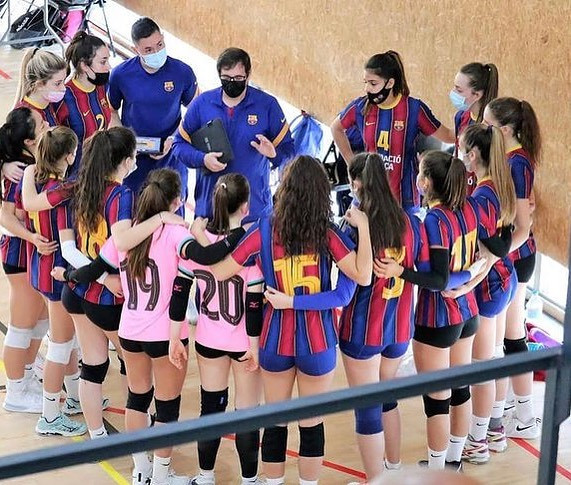
SportsEdTV: How do you see the future for women's volleyball?
Adrián Fiorenza: The sky is the limit. Women's volleyball is in a continuous growth. The competitions are very attractive for millions of spectators - right now all eyes are on the Champions League final between A. Carraro Imoco CONEGLIANO and VakifBank ISTANBUL. The match will take place next month, and I am sure it will be spectacular. Media has helped a lot for the growth of the popularity of volleyball - they give much more detailed information nowadays, you can watch live many matches. The challenge would be to continue evolving.
SportsEdTV: How do you see yourself in the future?
Adrián Fiorenza: I am a passionate coach who likes things to be happening during training and not much talking is done. Sometimes I am a bit obsessive with this. I try to dedicate the time to planning each of the sessions in beforehand, and later during the training, we can make the most of the exercises. I like to see my players grow, and I value this as much as the titles obtained by the team. This is the triumph of the coach. I am really happy that 10 players out of 14 in the BARÇA CVB first team, have started in our volleyball school.
SportsEdTV: Looking at applying the FC Barcelona ideology?
Adrián Fiorenza: We try to learn from them and proudly carry this spirit with us.
Photo source: Instagram

